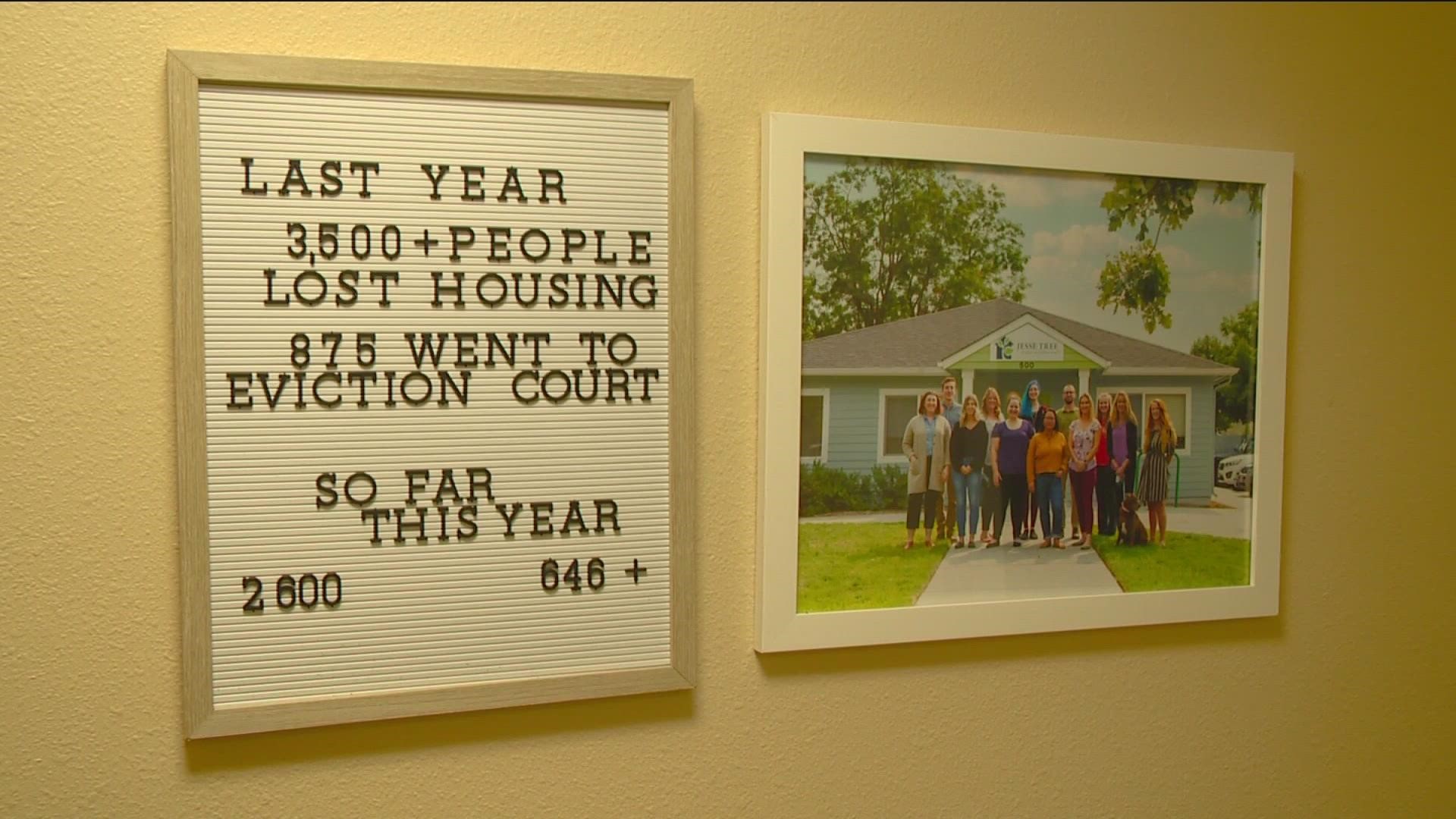BOISE, Idaho — Letters pinned along the walls of Jesse Tree show just how grateful some Idahoans are for the local housing nonprofit preventing evictions.
"The people we're serving are renters who are living month to month, paycheck to paycheck, and something happens whether it's they lose their jobs, have a health care bill or a childcare issue, their car breaks down and suddenly they can't pay rent," Executive Director Ali Rabe said.
Jesse Tree offers families one-time rental assistance and case management. Just last year, she said Jesse Tree prevented 1,600 evictions for families.
But the number of people Jesse Tree can help is decreasing.
The nonprofit recently ran out of Emergency Rental Assistance Program money. Rabe said the federal government gave them $3.4 million, which was spent over two years.
Community members, grants and local organizations primarily fund the nonprofit. Despite all that support, and the now-empty ERAP fund, Rabe said they couldn't meet demand.
"We had to turn away 75% of people that were asking for help," she said. "And we were only able to support about 25% of cases in eviction court in the Treasure Valley."
Because they don't have enough money, Rabe said they've had to let go of one employee and scale back the amount of rental assistance.
She said getting creative is their only option.
"Our case managers are working with families to take a really hard look at their budget to figure out when they're behind on their rent, if there's anything else they can do to make ends meet – pick up a side hustle, talk to friends or family," Rabe said.
Rabe still encourages people to apply for help. Jesse Tree has a priority system, which means someone could still get help depending on their situation.
They're also referring people to other nonprofits and agencies with some ERAP funding left — but that money is running out too.
Historically, Rabe said the federal government has never really invested in eviction prevention. There is potential legislation, called the Eviction Crisis Act, that could help.
"Until then, it's really falling to us and private donors and local governments to step up to fill the gaps," Rabe said.
She said knowing some people aren't getting the help they need takes a toll.
“It does feel really hard to turn people away,” Rabe said, “especially when they’re your neighbors. These are people that are very relative, single moms, older folds on fixed incomes, or working families that are trying to make ends meet every month.”
Watch more Local News:
See the latest news from around the Treasure Valley and the Gem State in our YouTube playlist:

